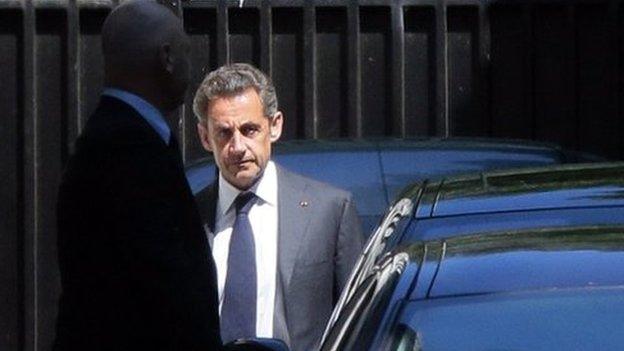France's Nicolas Sarkozy: 'Bling' and legal woes
- Published
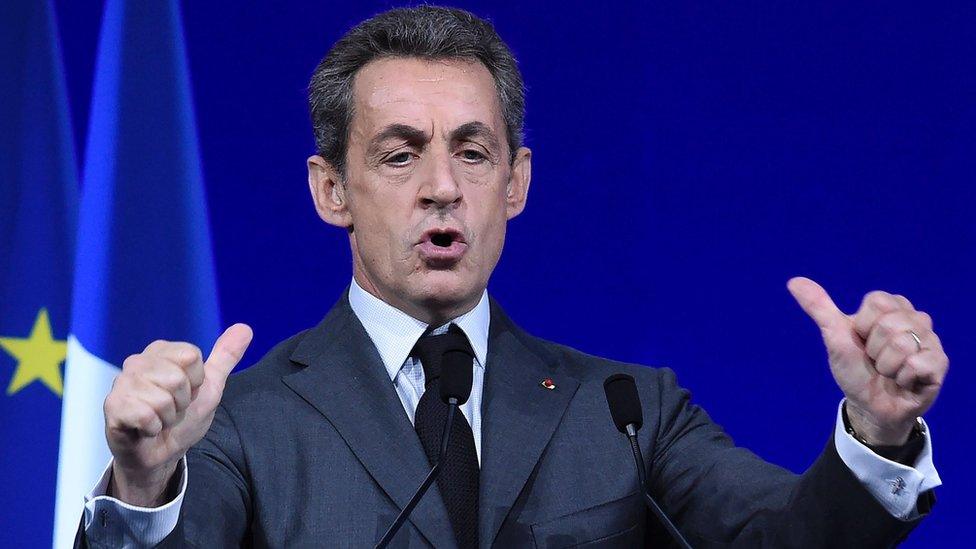
Judges are investigating Nicolas Sarkozy's political campaign finances
France's former president Nicolas Sarkozy, who led the country from 2007-2012, has already been twice convicted for corruption.
He has now taken the stand again, this time for allegedly accepting millions of euros from Libya's late dictator Muammar Gaddafi - money said to have financed his presidential campaign.
Sarkozy appeared in court in Paris on 6 January, alongside former aides and advisers who are also accused of involvement in the alleged pact.
The former conservative president has strongly denied the charges, saying the evidence presented by prosecutors was fabricated by Libyan officials seeking revenge for the downfall of Gaddafi's regime.
But Sarkozy's reputation has long been blackened by criminal allegations and corruption investigations since losing the 2012 presidential election to Socialist François Hollande.
Court battles
In 2021, he became France's first ex-president post World War Two to be handed a custodial sentence for corruption.
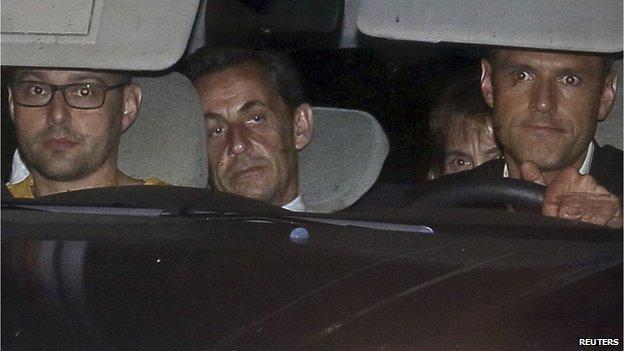
Temporary detention by police in 2014 was a new low point for Mr Sarkozy
He was sentenced to three years in jail - two of them suspended - for influence peddling and violation of professional secrecy.
A court found him guilty of trying to bribe a magistrate for information into an investigation into his campaign finances - both the magistrate and Sarkozy's lawyer were sentenced alongside him. Police had recorded secret phone calls where Sarkozy was reportedly heard telling his lawyer Thierry Herzog: "I'll get him promoted, I'll help him."
Last year, a Paris appeals court ruled that he could serve his time at home wearing a tag instead of going to jail.
He has also appealed against a February 2024 ruling which found him guilty of overspending on his 2012 re-election campaign, and hiring a PR firm to cover it up. He was handed a one-year sentence, of which six months were suspended.
The latest case stems from an investigation first launched in 2013.
Gaddafi's son had two years earlier accused Sarkozy of taking millions of euros of his father's money for campaign funding.
Lebanese businessman Ziad Takieddine, known as a middle man between France the Middle East, had then later also said he had written proof that Sarkozy's 2007 campaign had been "abundantly" financed by Libya, and that the payments worth €50m (£43m) continued after Sarkozy became leader.
'Bling-bling' presidency
Losing to François Hollande in 2012 made him the first French president not to be re-elected for a second term since Valéry Giscard d'Estaing in 1981.
Sarkozy's conservative predecessor as French president, the late Jacques Chirac, received a two-year suspended sentence in 2011 for having arranged bogus jobs at Paris City Hall for allies when he was Paris mayor. Chirac died in 2019.
Sarkozy sought the presidency again in 2016, but the Republicans - the rebranded UMP - instead nominated ex-Prime Minister François Fillon. Mr Fillon lost to the young and charismatic liberal Emmanuel Macron, who won the 2017 presidential election.
Critics nicknamed the 2007-2012 Sarkozy presidency "bling-bling", seeing his leadership style as too brash, celebrity-driven and hyperactive for a role steeped in tradition and grandeur.
At an agricultural show in 2008 he famously lost his temper with a man who refused to shake his hand. Mr Sarkozy told him: "Get lost, scumbag" - a rough translation of the vulgar expression he used.
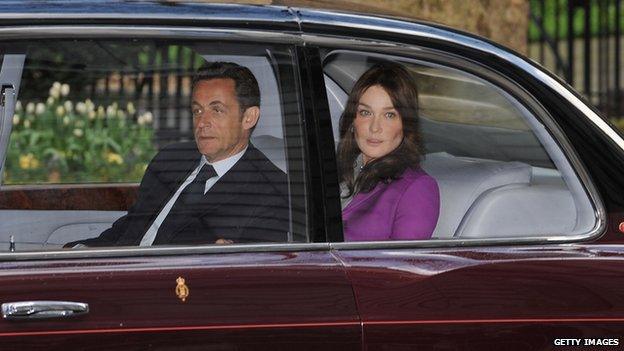
His relationship with Carla Bruni became the main media focus after he took power
His celebrity image was reinforced by his marriage to Carla Bruni in 2008. The couple had a daughter, Giulia, a few months before the 2012 election.
Sarkozy, who is twice divorced, also has a son from his second marriage and two sons from his first marriage.
Not among the elite
The son of a Hungarian immigrant and a French mother of Greek-Jewish origin, he was baptised a Roman Catholic and grew up in Paris.
Unlike most of the French ruling class, Sarkozy did not go to the Ecole Nationale d'Administration, but trained as a lawyer.
He also studied political science in Paris before launching himself into politics. His rise to the top began as mayor of Neuilly-sur-Seine, an affluent Paris suburb which he ran from 1983.
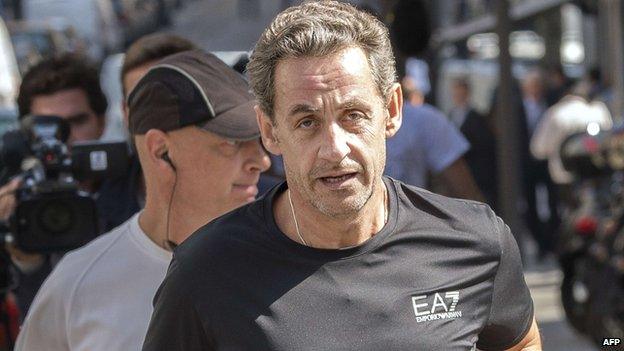
Mr Sarkozy is a keen jogger - here pictured in a Paris street
Initially a protege of Jacques Chirac, he became the right-hand man of Prime Minister Edouard Balladur in 1993-95, serving as budget minister.
When he backed Mr Balladur for the presidency in 1995, the decision caused a lasting rift with Chirac, the successful candidate.
Chirac famously chided him in his memoirs for being "irritable, rash, overconfident and allowing for no doubt, least of all regarding himself".
Tough on immigration
As interior minister in 2005 he notoriously talked of hosing down troubled housing estates, describing young delinquents in the Paris suburbs as racaille, or rabble.
That blunt comment - made before the 2005 riots in neglected suburbs, external- encouraged some critics to put him in the same category as the then far-right leader Jean-Marie Le Pen.
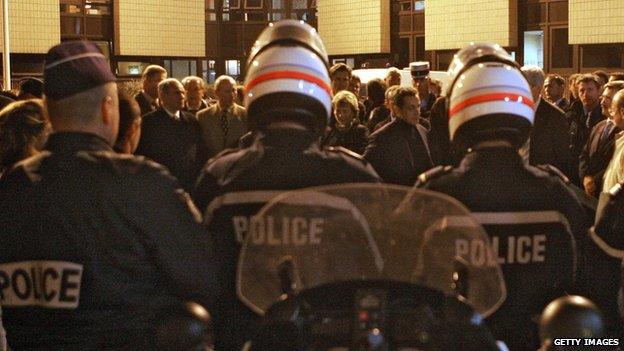
In 2005 violence erupted in Paris and some other cities while Mr Sarkozy was interior minister
Later as president he pushed through measures to curb illegal immigration - including highly controversial mass deportations of Roma (Gypsies).
At the same time, he advocated positive discrimination to help reduce youth unemployment - a challenge to those wedded to the French idea of equality.
Some of his appointments surprised the French political establishment: Rachida Dati became France's first cabinet minister of North African origin, in charge of justice, while Socialist Bernard Kouchner was made foreign minister.
Towards the end of his presidency, unemployment claims surged to their highest level in 12 years.
Yet he had been at the forefront of the European response to the global economic crisis in 2008 and helped establish the G20 summits involving the world's biggest economies.
He also saw through unpopular, but arguably necessary, reforms: raising the retirement age from 60 to 62; relaxing the strict 35-hour working week, external introduced by the Socialists; overhauling the universities and altering the tax system to encourage overtime and home ownership.
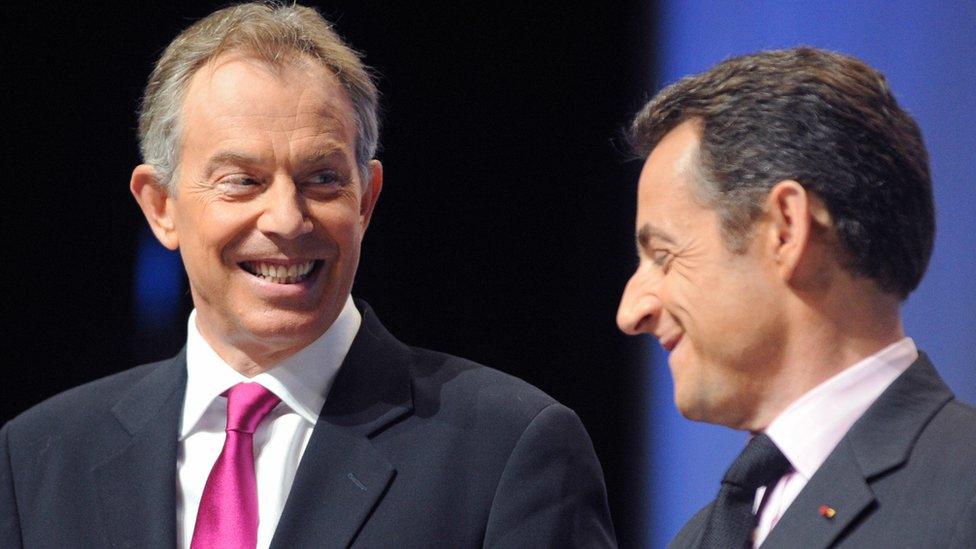
Mr Sarkozy admired the leadership style of Tony Blair
Statesman
On the international stage, Sarkozy was often described as an Atlanticist, though he opposed the US-led war in Iraq.
He admired the UK's then-Prime Minister Tony Blair, saying "[his] pragmatism has served his country well".
In March 2011, France was first to send warplanes into action against Gaddafi's forces in Libya, spearheading the foreign intervention that enabled the Libyan rebels to succeed. The Western role has drawn some criticism however because Libya quickly descended into factional fighting.
Sarkozy was credited with brokering an end to the August 2008 conflict between Russia and Georgia, external, though Russia later consolidated its grip on parts of Georgia.
In response to the global financial crisis of 2008, he vowed to punish speculators and advocated a strong state role in the economy.
Leading the EU response, he developed a close working relationship with German Chancellor Angela Merkel.
In the years since his presidency, he has been dogged by corruption cases.
His latest trial involving the alleged Libya links is set to last three months and continue until April. If convicted, he could face another custodial sentence of up to 10 years.
Related topics
- Published1 March 2021
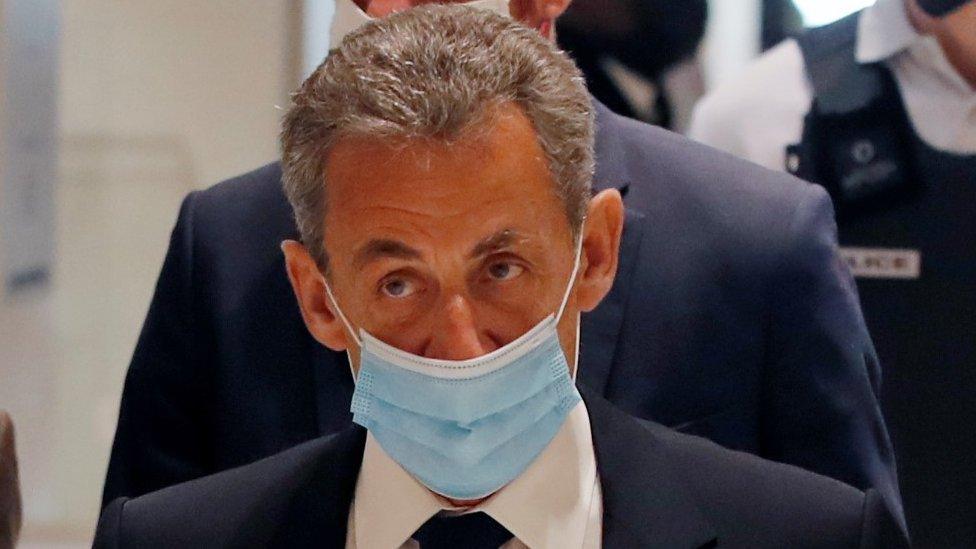
- Published29 March 2018
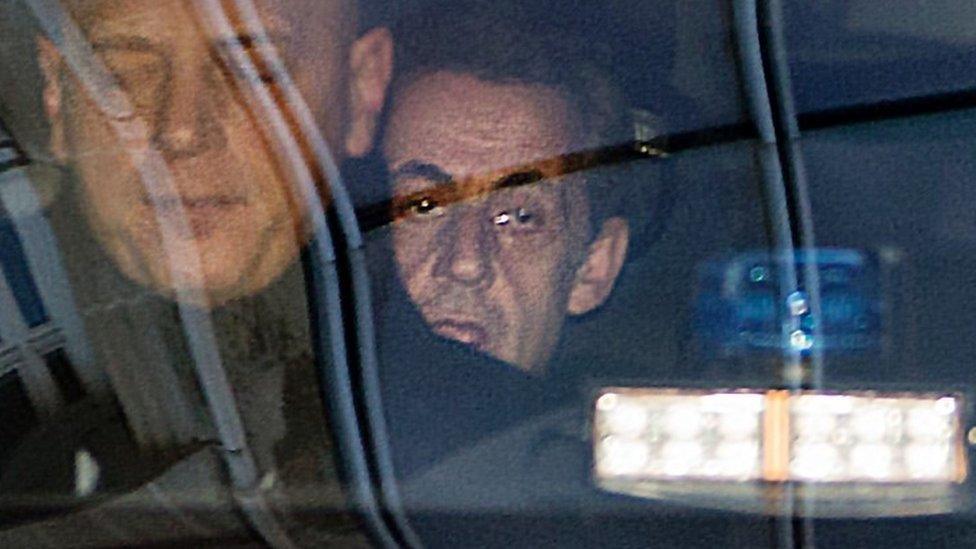
- Published30 May 2015
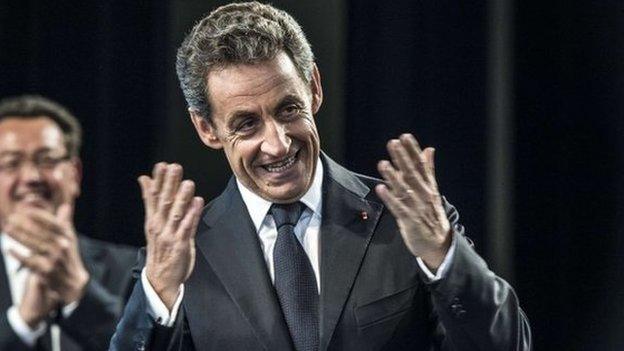
- Published2 July 2014
